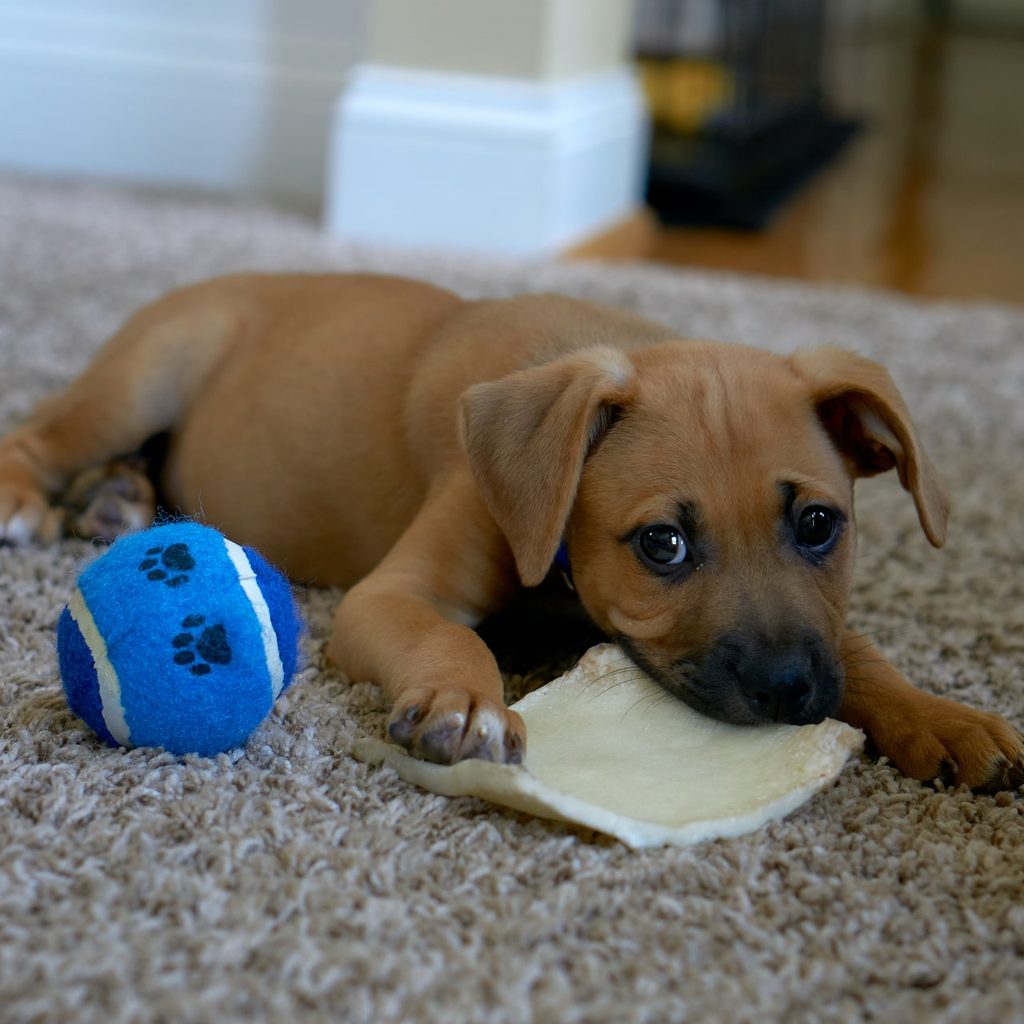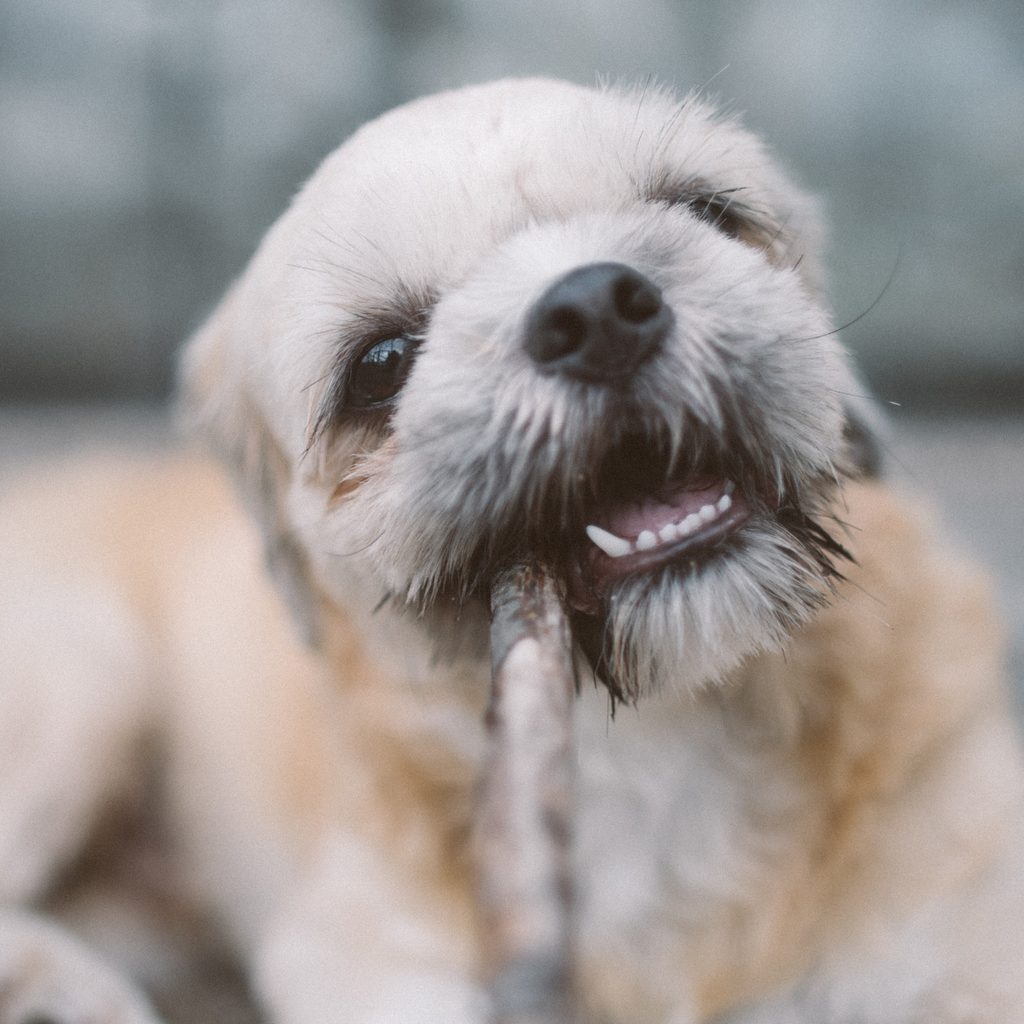We’re all in agreement here: There’s nothing cuter than a puppy. Even when the little rascal chews your favorite shoes or decides to relieve himself on your heirloom throw rug, that sweet little face helps melt away any anger or frustration.
But puppies don’t stay small forever. An undisciplined puppy grows up to become a very annoying adult dog. The things you teach your puppy when he is young help him develop the good manners he needs to politely interact with other people for the rest of his life. Respect training can be tough, but these tips make it easier.

Teach him not to bite
Puppy teeth are sharp! And although his nips are playful, it’s a good idea to discourage this behavior from the beginning. Uncontrolled biting as a puppy can lead to similar behavior as an adult — and nobody thinks that’s cute.
Puppies get nippy between the ages of 10 and 12 weeks, which is when they are teething. This is the best time to begin taming this behavior. Here are a few tips:
- Yelp. Use a high-pitched voice to say “no” or “ouch” when your puppy bites you. That frequency sounds like a painful yelp to him, signaling that he has hurt you.
- Ignore him. If your puppy becomes too feisty during a play session and won’t stop biting, put him on the ground, turn your back, and hide your hands. Resume playtime when he has settled down.
- Give him something appropriate to chew on. Make sure you have some vet-approved chew toys in the house to offer as an acceptable substitution.
- Reward him. Give him a small treat or extra snuggle each time he calms down and stops biting.
Teach him to greet people politely
Dogs get to meet each other at eye level, but when it comes to meeting humans, most dogs have a distinct disadvantage. While it’s common for a dog to jump up to get your attention, it’s not pleasant or safe. A 2010 study by the U.S. Centers for Disease Control and Prevention found that pets caused an estimated 86,629 fall injuries between 2001 and 2006, many of which occurred inside the home from a jumping dog.
Set aside a few minutes each day for this training. Five-minute sessions are best, with a 15-minute-per-day goal, since puppies have short attention spans. You might also want to enlist the help of a friend or family member and purchase a small bag of training treats.
- Put your puppy on a leash and walk outside.
- Ask your helper to stand at a distance and approach him slowly.
- Continue the approach as long as your puppy isn’t pulling or jumping. If he does, correct him by firmly saying “no,” then turn around and walk the other way. Make him sit for a moment before beginning the process again.
- Practice until your puppy understands that any jumping or pulling is undesired and goes unrewarded.
- Reward calm behavior with a training treat.
Note: This method works to teach proper etiquette for greeting guests at the front door, too.

Teach him appropriate chewing behavior
Puppies do a lot of teething between the ages of 3 and 6 months. That’s because their razorlike puppy teeth are making way for adult teeth. And although they still seem so young, knowing what to chew on as a puppy means they will understand how to respect others’ belongings as they grow.
This takes time and patience, but these tips will help:
- Purchase chew toys your puppy can carry in his mouth and keep them in strategic locations throughout the house.
- Substitute one of these toys for any inappropriate items you catch him chewing on, or when he becomes nippy.
- Monitor his activity. Whether it’s a chew toy you’ve given him or something that he’s found lying around the house, it takes only a few moments for him to shred and, possibly, eat it.
- Reward positive behavior. Dole out praise whenever you see your puppy chewing on an appropriate toy.
And remember, always use positive reinforcement during training sessions. Yelling at your puppy or using physical punishment can cause fear and anxiety, both of which can become behavioral issues in the future. Be consistent with the words and hand signals you use. And above all, be patient. All puppies are different. Like humans, they learn at different speeds and make mistakes from time to time. Remember that your goal is to teach your puppy correct behavior, so that his adult behavior is welcome wherever you go. With love, patience, and consistency, you can help your puppy become a respectful member of your family.


